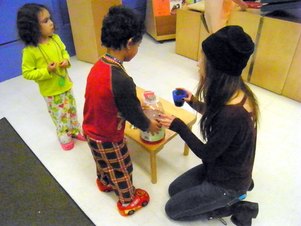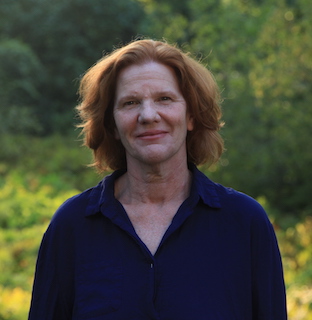Welcome to First Parish Milton
What is Unitarian Universalism?
Unitarian Universalism is a theologically liberal faith tradition. We are bound together by shared commitments to one another as we engage in a free and responsible search for truth and meaning. It is a covenantal, rather than a creedal, faith. That means that, although we may believe differently, we come together to search, grow, serve, and minister. As Francis David said, “We need not think alike to love alike.”
Both Unitarianism and Universalism sprang from liberal Christianity. We are grounded in the historic Unitarian conviction that by Jesus’ example we know that the holy can be brought to life in and through our human lives, and in the Universalist conviction that divine love is unlimited and redeems all people. UUs today believe many different things but share a common faith that life is holy and each person is worthy, as well as a common commitment to spiritual growth and social action.
Watch the video here: https://smallscreen.uua.org/videos/we-are-unitarian-universalists/
What is Unitarian Universalism?
What goes on during Sunday worship?
Is there childcare during the service?
Can my child stay with me in the service?
What do you mean by Welcoming Congregation?
What should we wear?
What is the significance of the symbols in the sanctuary?
How can I get more information?
What goes on during Sunday worship?
Our worship services are the central gathering place for our practice of growing deep faith and strengthening ourselves to take bold action, in our lives, in our community, and in our world. Sunday worship is the time each week that we set aside to be in religious community, to connect with the ground of our being, with one another, and with our deepest selves. Our community gathers to share prayers for one another and our local and global community; to remember those who have gone before; to celebrate the joys and comfort the sorrows of those present; and to welcome newcomers.

Worship in our church follows a familiar Protestant format, with stories, readings, hymns, a prayer, offering and a sermon. Because we believe that sacred truths can be found in many different sources, our stories and readings come from both ancient and contemporary sources, from sacred scriptures of the world’s many religious traditions, as well as from poetry, literature, and current events. The sermon is a reflection on contemporary life, is illuminated by the readings, and is usually offered by our minister.
Is there childcare during the service?
Nursery care is available from the Sunday after Labor Day until the second Sunday is June each year.
Can my child stay with me in the service?
Children of all ages are always welcome in worship.
What do you mean by Welcoming Congregation?
First Parish welcomes people of all races, colors, gender identities, sexual orientations, abilities, classes, and national origins. We are officially recognized as a Welcoming Congregation of the UUA—a sign of our commitment to welcome and celebrate the presence and participation of gay, lesbian, bisexual, transgender, and queer people in all aspects of parish life.
What should we wear?
Dress in a way that makes you feel comfortable. You will see some people in their “Sunday best,” some in business casual, and some in jeans or other casual clothing.
What is the significance of the symbols in the sanctuary?
Our Meetinghouse was built in 1787, and is the fourth Meetinghouse of this congregation (founded in 1678). Its original design was simple and plain, so that nothing could interfere with the worshipers’ focus on God. During the 19th Century, many changes were made resulting in the interior you see now. The scripture texts, cross, and chalice each have historic importance and carry with them both blessing and challenge.
The scripture texts were added at different times during the 19th Century. The panels on either side of the pulpit were added with a first stage of renovations, summing up the congregation’s central theological ideas at the time. The verses around the ceiling were later chosen by the Rev. Roderick Stebbins as those which he wished to have present before the congregation regularly.
The cross that hangs behind the pulpit was a gift of Mrs. Edith Endicott Stebbins, the widow of the Rev. Roderick Stebbins. She presented it to the church in memory of her husband and “as a benediction on all those who would preach from this pulpit.” The cross is best known as a Christian symbol and has origins that date back to pagan faiths of many cultures with the idea of the intersection of the heavens and earth, or the divine and the human.
The chalice is the contemporary symbol of Unitarian Universalism. It began as a logo created by the Unitarian Service Committee during World War II in Europe, a signal that people of all faiths were welcome where they saw a chalice with a flame. Its deeper historic origins go back to the Protestant Reformation and the communion cup that was open to all, as well as the flames of religious martyrdom of the time. We now sum it up as the cup of fellowship in which all are welcome and the light of truth that burns most brightly when we are together.
Many of us find comfort weekly in one or more of these symbols; many of us also find one or more of them challenging and an invitation to reflection. We welcome the power of symbols to teach us about where we are on our own journeys and invite us into deeper connection and conversation as a faith community.
How can I get more information?
You can browse the rest of our website, where you will find lots of information about the church and its various activities and programs. At some point, you may wish to attend our series of two orientation sessions for newcomers to our congregation – these are typically offered twice a year, in the fall and spring. On any Sunday, you can find a Greeter by the front door who would be happy to talk with you, answer questions, or introduce you to others. Our Minister would also be happy to speak with you at any time. You can contact us here or by calling the church office at 617-698-6329.
 Rev. Lisa Ward has been our settled minister since August of 2016. Ordained in 1992, Rev. Lisa has served congregations in New York City, Queens, White Plains, NY and Harford County, MD. A graduate from Union Theological Seminary in NYC, she has engaged in social justice initiatives throughout her career…
Rev. Lisa Ward has been our settled minister since August of 2016. Ordained in 1992, Rev. Lisa has served congregations in New York City, Queens, White Plains, NY and Harford County, MD. A graduate from Union Theological Seminary in NYC, she has engaged in social justice initiatives throughout her career… 